




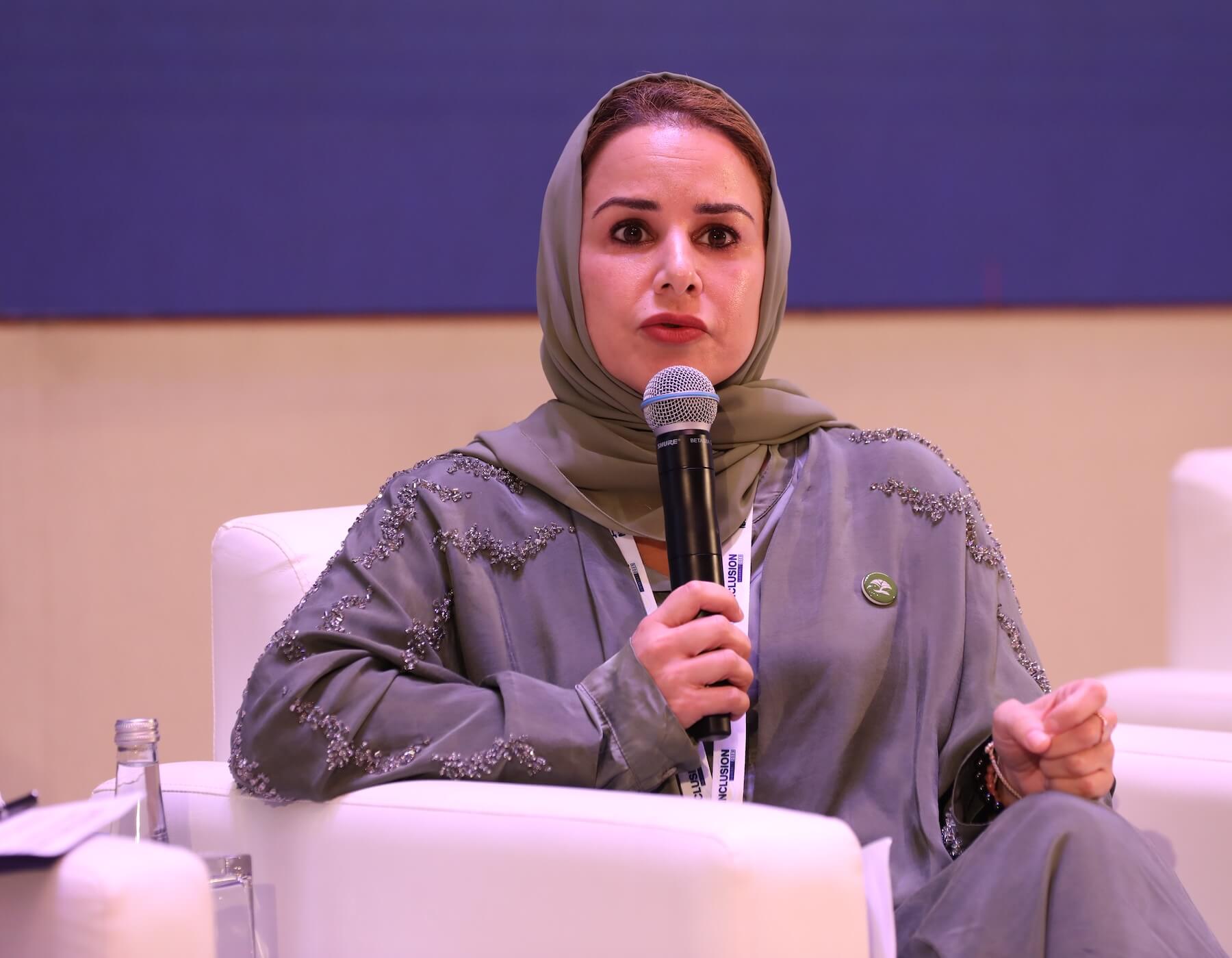
Addressing the needs of people of determination requires “inside-out, upside-down thinking”, says Reem Al Fahim, CEO, SEDRA Foundation.
Moving into a more inclusive future, she asked the audience of day two of Aurora50’s The Inclusion Summit to consider the question: what are the things we could do to be more sustainable in our thinking, more resourceful in creating lives where everyone feels they belong and can fully participate?
In a collective call to action, Ms Al Fahim said: “We have to stand behind humanity together.”
She said that, while fairness should be intrinsic, it often is not – meaning foundations such as SEDRA are critical to ensure nobody is left behind.
“We are all interconnected – each person has something to offer from where they stand,” she added.
The UAE’s hosting of the Special Olympics World Games in 2019 left a legacy, Ms Al Fahim said, “a prime time to offer services for the community”, which saw the likes of hotels and society preparing in ways never seen before.
“This is a mandate and we all have to do something,” she added.
Ms Al Fahim said the private sector has come on board in the last couple of years, with comprehensive accessibility checks being done and ways to make workplaces more accessible and inclusive under way.
The Abu Dhabi Department of Community Development (DCD) has been a pioneer, she added, but entities such as SEDRA are helping bring together the private and public sectors.
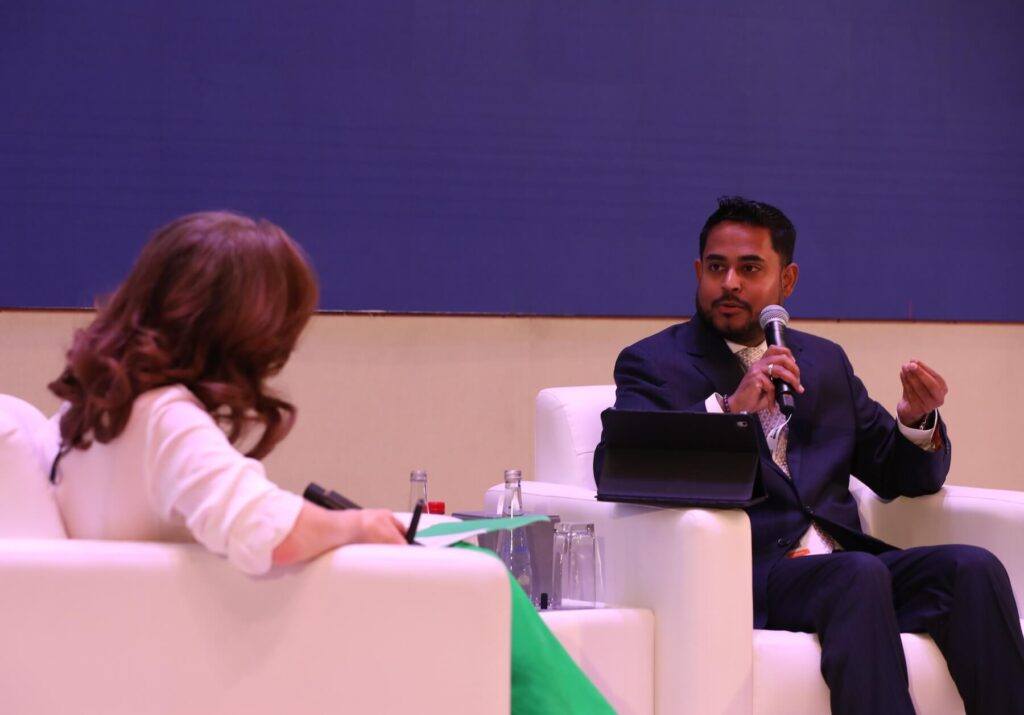
On an expert panel, Professor Immanuel Azaad Moonesar, Professor of Health Policy and Systems Research at Mohammed Bin Rashid School of Government, said there must be a major focus on children, who are the future generation of inclusivity.
He said change is still required, even in the healthcare sector, such as reshaping hospital infrastructure including larger doors and ramps, as well as reshaping policies.
“To improve quality of care … hospitals and clinics need to ensure they are inclusive – ramps, accessible bathrooms, wide doorways, tactical guiding paths – as well as training and sensitisation of the staff, both in the public and private sector,” Professor Moonesar said.
“It will take partnerships to make this a success story.”
The UAE is a ‘success story’, he noted, though policies must constantly be monitored and evaluated.
Inclusivity “should be embedded in our normal day living, through our working practices, and we should change our mindsets as a whole, through advocacy, education,” he added.
Alicia Ludwig, MEO Portfolio Strategy & Product Planning Manager, General Motors Africa & Middle East, agreed.
“The UAE regulatory framework supports these efforts towards inclusion,” she said.
Emirati working mother Marwa Al Menhali has a three-year-old daughter of determination, Mira.
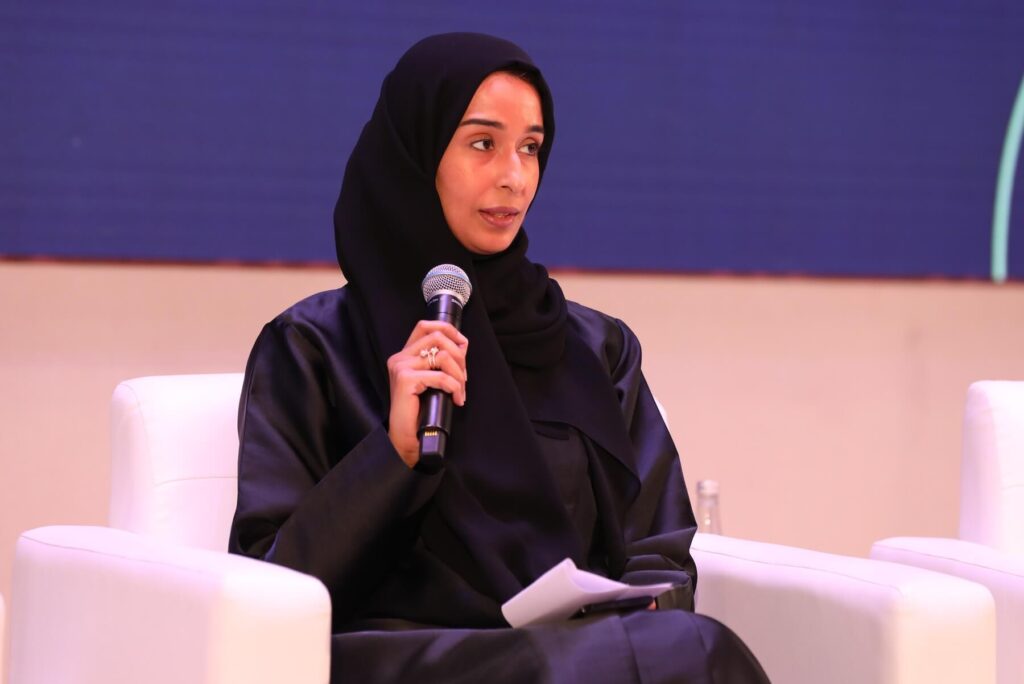
Mira has a rare genetic disease and Ms Al Menhali says that, as a mother, there have been challenges.
“Intervention and education for the children has been challenging” she said, and the journey of raising a child of determination had been a “rollercoaster of emotions”.
“I faced a lot of challenges, navigating the complex system of diagnosis,” she told the audience. Ms Al Menhali said her daughter never stops inspiring her each day, as she makes progress beyond even the doctors’ prognoses.
From a corporate perspective, Salwa Almaflahi, Director of Community Outreach, ALDAR, shared the company’s own policies and goals to make a more inclusive workplace which will also filter out into making social change.
“Diversity is having a seat at the table, inclusion is having a voice, and belonging is having that voice heard,” she said.
“To us it means fostering a sense of belonging in the organisation. It’s believing in it to empower the growth and culture of the organisation, not only in the workplace but in a social environment too.”
As employers, Ms Almaflahi said there is an issue of preparedness to be addressed.
Training and awareness are needed, to ensure the success of integrating people of determination into a workplace where they are welcomed and comfortable.
The issue of unconscious bias exists and can only be resolved through a targeted strategy.
Ms Almaflahi also said companies must not look at disability and determination as a medical condition but as an “opportunity”.
Celebrating the progress happening in Abu Dhabi, Ms Almaflahi shared examples of initiatives such as the accessibility champion programme Aldar has.
This is a pilot scheme with SEDRA, which brought together people of determination and the company to establish successful ways of integration.
Aldar has also since audited places such as Yas Mall and found the need for features such as ramps, implementing things like ‘quiet hour’ for autism sufferers and technology devices to serve people such as the hearing impaired.
Next, Ms Almaflahi shared that trainings for all mainstream employees are being discussed now, on how to better include those with determination, all resulting from the pilot programme.
Aurora50 ran The Inclusion Summit in November 2023 and the Inclusive Workplaces Summit in November 2024. Register your interest in attending or sponsoring future Summits.
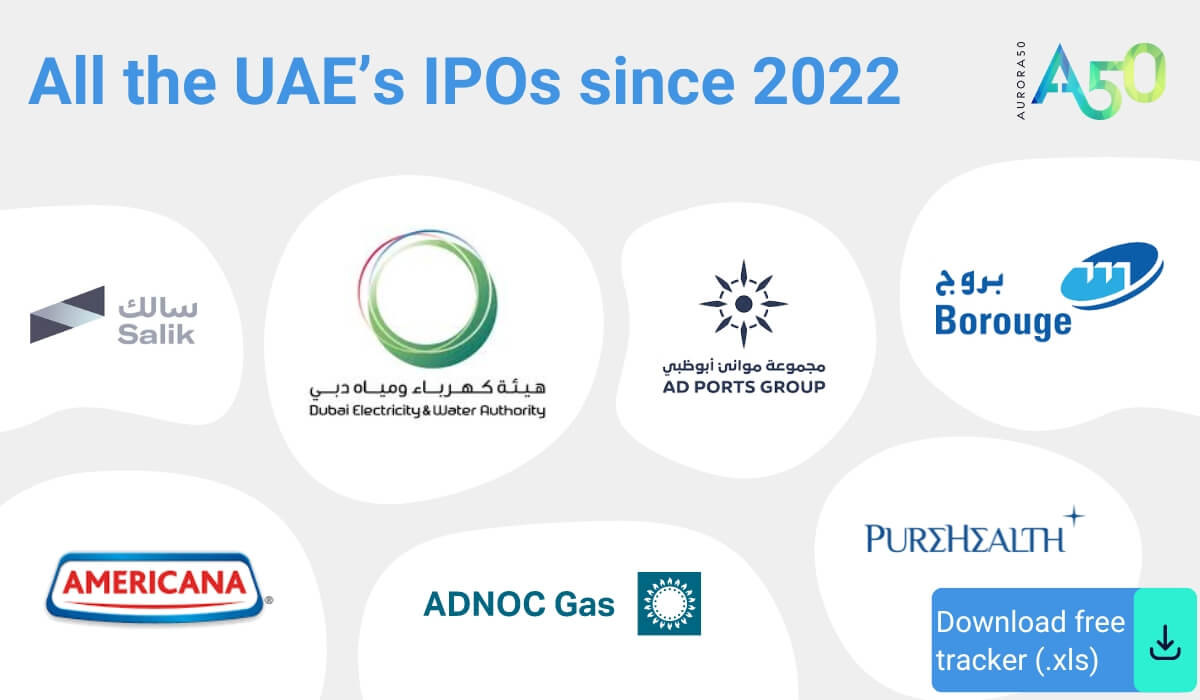
IPOs mean more diversity and more women on boards: here we list the UAE’s in 2024, starting with Parkin and Spinneys Dubai and looking to anticipated IPOs such as Etihad and Lulu.
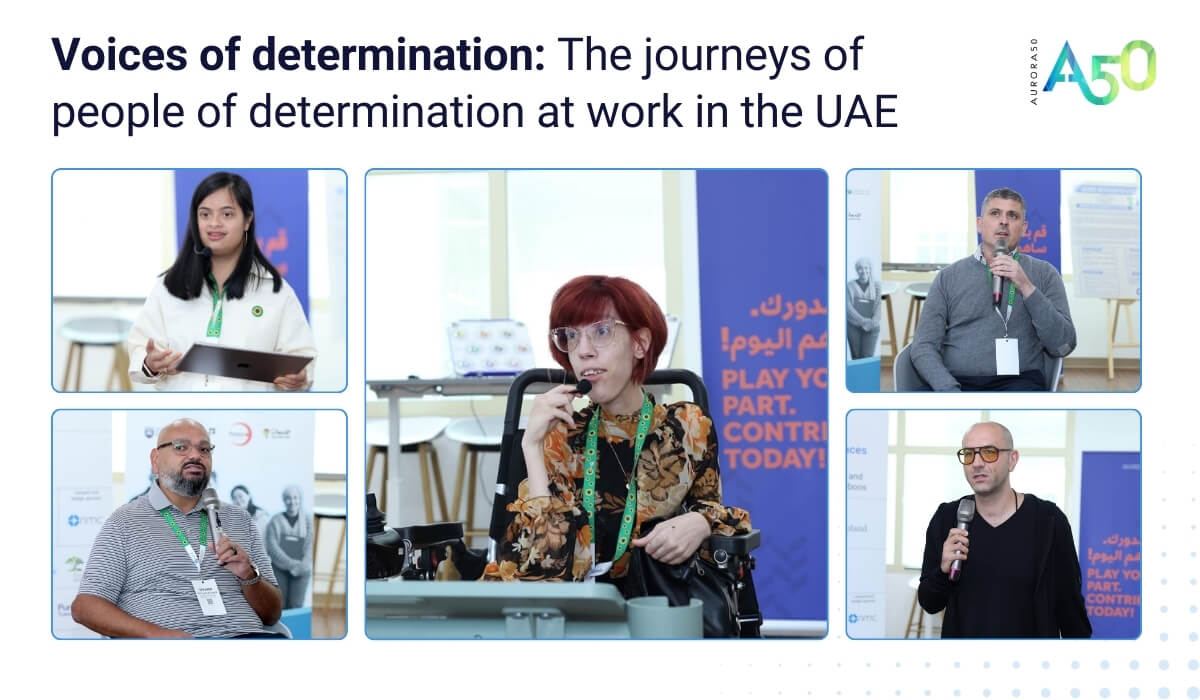
Inspiring interviews with Noura Farag, Aarti Shah, Marco Giovannoli, Nadi Choueiri and Ahmed Mehaya at Aurora50’s Inclusive Workplaces on finding fulfilling work.
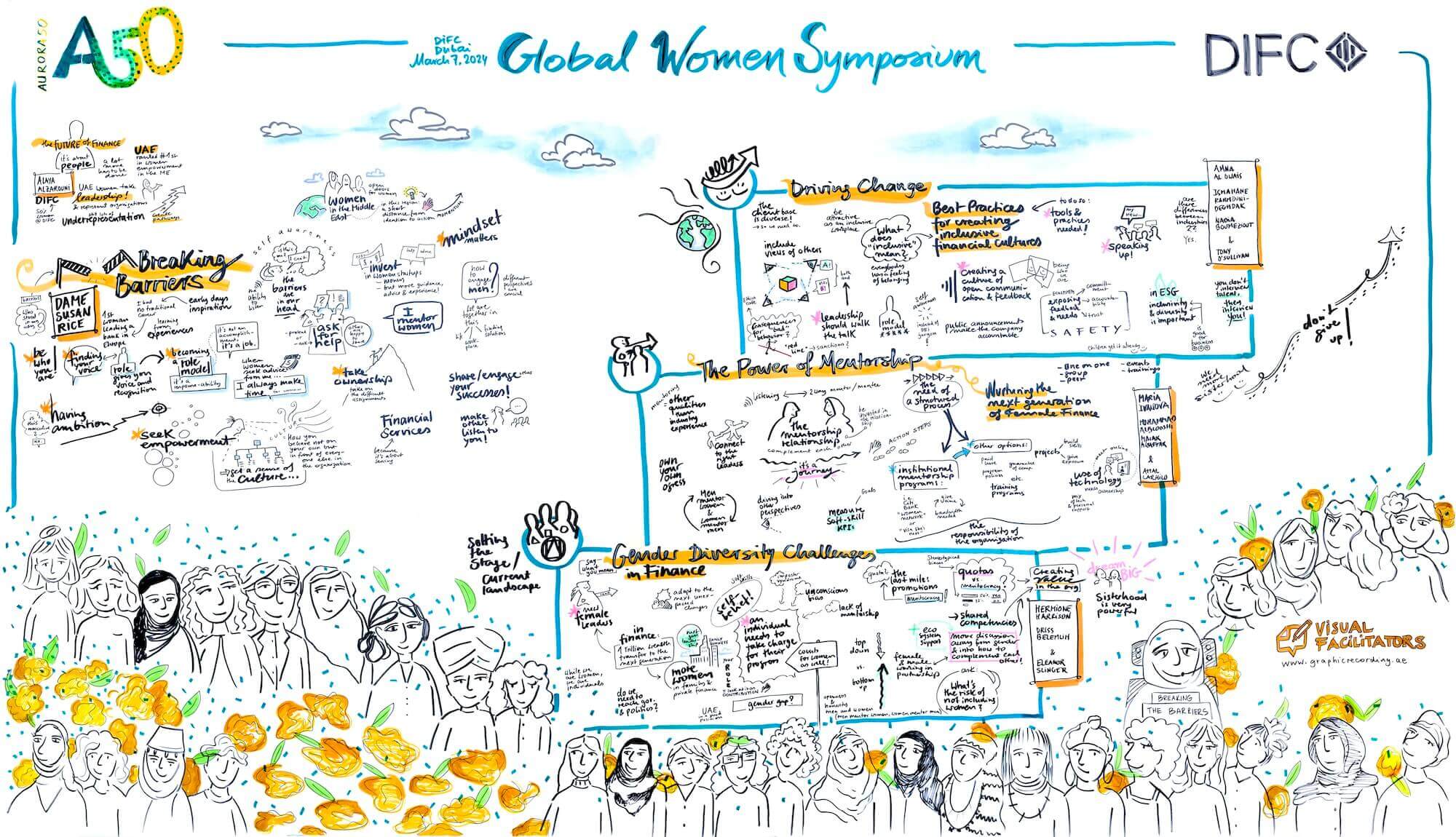
To celebrate International Women’s Day, DIFC and Aurora50 held the Global Women’s Symposium on gender diversity in finance.

